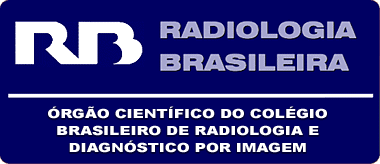Abstract
Objective:
To evaluate the knees of individuals with renal failure who are on hemodialysis, using magnetic resonance imaging (MRI), comparing them with those of a group of individuals with normal renal function.
Materials and Methods:
This was a cross-sectional, observational, controlled study conducted between August 2018 and February 2020. The cases consisted of 15 patients who had been on hemodialysis for ≥ 5 years and did not have a quadriceps tendon rupture. The controls consisted of 15 individuals with normal renal function who were matched (1:1) to the cases for sex, age, and physical activity level. The subjects in both groups underwent MRI of the right knee only.
Results:
The mean ages of the cases and controls were 50 ± 15 years and 49 ± 14 years, respectively. The median time on hemodialysis was 11 years (range, 10-14 years). Serum levels of parathyroid hormone, ferritin, alkaline phosphatase, phosphorus, and creatinine were higher among the cases than among the controls, whereas serum albumin and hemoglobin were lower (p < 0.05 for all). The MRI study showed a hyperintense signal in the quadriceps tendon in 11 of the cases and in three of the controls (p = 0.009). Knee joint effusion was observed in nine of the cases and in three of the controls (p < 0.05). The thickness, length, and width of the tendon did not differ between the groups. A hyperintense signal in the tendon was not associated with the time on hemodialysis; nor with the levels of intact parathyroid hormone, hemoglobin, or alkaline phosphatase.
Conclusion:
Patients on chronic hemodialysis, even those without a tendon rupture, show a hyperintense signal in the quadriceps tendon on MRI.
Keywords:
Tendons/pathology; Magnetic resonance imaging; Renal insufficiency; chronic/complications; Renal dialysis; Risk factors; Hyperparathyroidism

 Thumbnail
Thumbnail
 Thumbnail
Thumbnail
 Thumbnail
Thumbnail
 Thumbnail
Thumbnail



